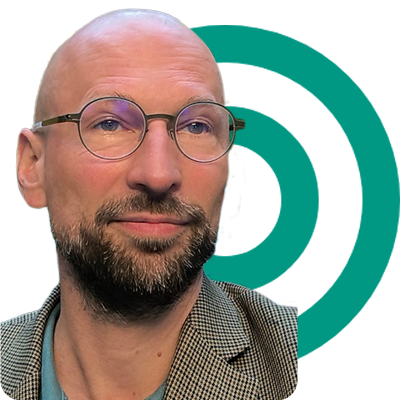Workshop 1 – 31 October 2025
Are you interested in sustainable energy from the deep subsurface? Do you want to explore the geological foundation of geothermal energy and carbon capture and storage (CCS) by studying real reservoir rocks?
If you do, then join us for the EAGE GET2025 one-day workshop at PanTerra Geoconsultants, where theory meets practice in a unique, hands-on experience focused on geological risk assessment for CCS and geothermal projects.
This dynamic workshop is divided into three parts:
You will get exclusive access to core slabs from the EBN BLT-01 and EDE-01 exploration wells, drilled specifically for geothermal exploration in the Rotliegend formation.
This workshop is designed for a wide range of professionals in the energy sector, from early-career geoscientists and environmental specialists to seasoned industry experts – and for anyone passionate about sustainable energy!
Don’t miss this opportunity to connect with your peers, deepen your understanding, and see the subsurface like never before!
You will be required to sign in upon arrival and sign out upon departure.
Focus of the workshop: using small scale observations from core material to answer risk related questions in a larger scale CCS operation.
General introduction to CCS
Accessible introduction done by an (inhouse) expert on the geological aspects of CCS. The key focus here is in the geological risks for CCS. The following can be introduced:
Regardless of the prior knowledge of the attendee, an expert will provide a baseline for the workshop and preparing the attendee for the core handling exercise.
Core handling exercise
The group will be divided into groups of three attendees. If the total group size is limited, the workshop can be held with the group as a whole. The groups could preferentially contain at least 1 experienced geoscientist and less experienced attendees. Each group will get a core sample, including a reservoir, and a caprock sample. Following the introduction, the attendees are invited to study the core samples and discuss within the group how the rock properties would impact a CCS operation. Observations such as:
Group discussion
Following the core handling exercise, the groups are invited to give a brief outline of their observations. A list of the observations per component of the storage site is created. This will be used to hold a group discussion on the various rock properties with respect to risks in CCS. The centralized question here is: do the rocks in this case study make for a good storage candidate?
A link between observations in the lab and the risks of storage sites will be made – but also the limitations: what observations cannot be done on a small scale core? How can other studies, such as lab tests, contribute to providing answers? Do more in depth lab studies confirm the core observations?
In addition, a link between CCS and Geothermal risks and observations will be made.
Focus of the workshop: using small scale observations from core material to answer risk related questions in a larger scale GT operation
General introduction to GT
The key focus here is in the geological risks for Geothermal. The following will be introduced:
Regardless of the prior knowledge of the attendee, a baseline for the workshop will be provided to preparing the attendee for the core handling exercise.
Core handling exercise
The group will be divided into groups of three attendees. If the total group size is limited, the workshop can be held with the group as a whole. The groups of three attendees could preferentially contain at least 1 experienced geoscientist and less experienced attendees. Each group will get a core sample of a potential geothermal reservoir. Following the introduction, the attendees are invited to study the core samples and discuss within the group how the rock properties would impact a CCS operation. Observations such as:
Group discussion with the expert
Following the core handling exercise, the groups are invited to give a brief outline of their observations. A list of observations per component of the geothermal reservoir is created. A group discussion on the various rock properties with respect to risks in Geothermal will be held. The centralized question here is: do the rocks in this fictive case study make for a good Geothermal energy reservoir? Further questions: What are the contrasts between different reservoir types? Were any features missed? What observations cannot be done on a small scale core?
A link between the core viewing and risks will be made: what observations cannot be done on a small scale core? How can other studies, such as lab tests, contribute to providing answers? Which in depth studies can confirm the core observations?
A link will be made between Geothermal and CCS risks – and it will be discussed which risks are similar or different between CCS and Geothermal.
Group 1 and 2 have equal time for CCS and Geothermal programmes.
Preliminary programme Group 1
| Activity | Presenter | Time | Duration | Location |
|---|---|---|---|---|
| Meeting the group | - | 08:45 | - | GET Registration Desk |
| Arrival and sign-in | - | 10:00 - 10:15 | 00:15 | - |
| Day planning, PanTerra intro and round of introduction | Marcel Zwaan | 10:15 - 10:30 | 00.15 | Conference Room 2 |
| CCS workshop | - | 11:30 - 12:30 | 02:00 | Conference Room 2 |
| Introduction Dutch Geology | Thomas Mooiji | 10:30 - 10:35 | 00:05 | Conference Room 2 |
| Subsurface principals and risk in CCS | Ben Dewever | 10:35 - 11:05 | 00:30 | Conference Room 3 |
| Introduction to core material | Seven McCarthy | 11:05 - 11:20 | 00:15 | - |
| Core viewing exercise and group discussion | - | 11:20 - 12:30 | 01:10 | Conference Room 3 |
| Lunch Break | - | 12:30 - 13:00 | 00:30 | Conference Room 2 |
| Lab tour | Dario Santonico | 13:00 - 14:00 | 01:00 | PanTerra Lab |
| Geothermal workshop | - | 14:00 - 15:50 | 01:50 | Conference Room 2 |
| Subsurface principals of Dutch GT | Thomas Mooiji | 14:00 - 14:15 | 00:15 | - |
| SCAN project | Adriaan Janszaan | 14:00- 14:15 | 00:15 | - |
| Core viewing introduction | Seven McCarthy | 14:30 - 14:35 | 00:05 | - |
| Core viewing exercise and group discussion | - | 14:35 - 15:35 | 01:00 | Conference Room 3 |
| BLT-01 and EDE-01 will test results | Adriaan Janszaan | 15:35- 15:50 | 00:15 | - |
| Day close out | - | 15:50 - 16:00 | 00:10 | - |
Preliminary programme Group 2
| Activity | Time | Duration | Location |
|---|---|---|---|
| Introduction welcoming guests and short PanTerra speech | 10:00 - 10:15 | 0:15 | |
| Lab tour Group split in 2 to be accommodated in the lab | 10:15 - 11:15 | 01:00 | Conference Room 3 |
| Geothermal workshop | 11:15 - 12:45 | 01:30 | |
| Introduction to geothermal, and discussion of key risks. Introduction from EBN on SCAN project. | 11:15 - 11:30 | 0:15 | Conference Room 3 |
| Breakup in groups of 3, core handling | 00:00 - 00:00 | 0:30 | Conference Room 3 |
| Group discussion on observations/interpretations | 12:00 - 12:45 | 00:45 | Conference Room 3 |
| Lunch | 12:45 - 13:15 | 00:30 | Canteen Area |
| CCS workshop | 13:15 - 14:45 | 1:30 | Conference Room 3 |
| Introduction | 13:15 - 13:30 | 00:15 | Conference Room 3 |
| Breakup, core handling | 13:30 - 14:00 | 00:30 | Conference Room 3 |
| Group discussion, comparison to CCS | 14:00 - 14:45 | 00:45 | Conference Room 3 |
| Closeout | 14:45 - 15:00 | 00:15 | Conference Room 3 |

SLB
Dariusz obtained his MSc at Wroclaw University in Poland in 2002.
After his PhD (2007) in geology, gas isotope geochemistry and microbiology at the Indiana University, Bloomington, he has worked in Subsurface Technology at ConocoPhillips for three years followed by one year of consulting (Dariusz BioGeoChem) working on petroleum systems and subsurface biomethane stimulation.
In 2012 he has joined SLB and since then has been developing interpretation workflowsand answer products for surface formation evaluation (mud gas and cuttings logging). Since couple of years his works involves H2 and helium logging and exploration, for which the global activity is rapidly growing.
This topic also brings ideas of stimulated natural H2 in the subsurface, which brings together geological and fluid geochemistry knowledge to a new level of collaboration among academic and industrial communities.
Dariusz is very active within the geochemistry community, with multiple peer-reviewed papers and chapters, numerous conference-related activities, journal editorships, and intellectual property publications.

SLB
Dariusz obtained his MSc at Wroclaw University in Poland in 2002.
After his PhD (2007) in geology, gas isotope geochemistry and microbiology at the Indiana University, Bloomington, he has worked in Subsurface Technology at ConocoPhillips for three years followed by one year of consulting (Dariusz BioGeoChem) working on petroleum systems and subsurface biomethane stimulation.
In 2012 he has joined SLB and since then has been developing interpretation workflowsand answer products for surface formation evaluation (mud gas and cuttings logging). Since couple of years his works involves H2 and helium logging and exploration, for which the global activity is rapidly growing.
This topic also brings ideas of stimulated natural H2 in the subsurface, which brings together geological and fluid geochemistry knowledge to a new level of collaboration among academic and industrial communities.
Dariusz is very active within the geochemistry community, with multiple peer-reviewed papers and chapters, numerous conference-related activities, journal editorships, and intellectual property publications.
I’m your AI-assistant AT GET 2025
As your supercharged search engine, I’ll help you browse the programme, explore sessions and speakers, plan your schedule, get quick answers, and stay updated.
